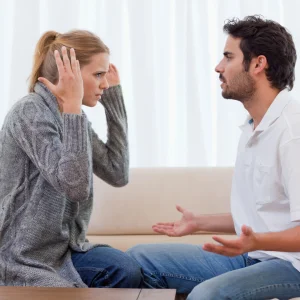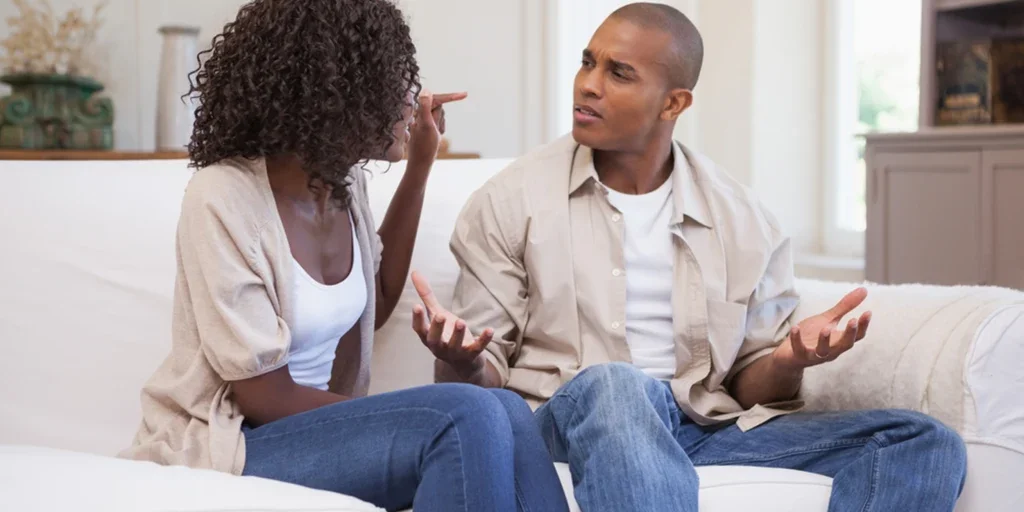Like a slowly spreading poison, toxic relationships can infect our lives with pain, distress, and negativity. Escaping these harmful relationships can often seem like an insurmountable challenge. The longer we stay, the deeper we fall, and the more impossible it seems to climb our way out to healthier interactions and self-perceptions. But here’s the ray of hope: counseling. Often underestimated, counseling can serve as a powerful tool in our arsenal to combat and rectify the damages caused by toxic relationships.
So, if you find yourself caught in this web of toxicity and are searching for a way out, or if you’re curious about the healing power of counseling, read on.
Contents
- 1 What Is A Toxic Relationship?
- 2 Signs That You Are In A Toxic Relationship
- 3 Impact of Toxicity in a Relationship
- 4 Can Counseling Help in Fixing a Toxic Relationship?
- 5 How Counseling Can Fix Toxic Relationships
- 6 Benefits of Counseling for Couples in a Toxic Relationship
- 7 How Long Does It Take to Heal from a Toxic Relationship After Counseling?
- 8 Conclusion
What Is A Toxic Relationship?
 At its core, a toxic relationship is like a parasitic plant that wraps around a healthy tree, draining it of its nutrients while giving nothing in return.
At its core, a toxic relationship is like a parasitic plant that wraps around a healthy tree, draining it of its nutrients while giving nothing in return.
A toxic relationship often involves consistent patterns of disrespect, manipulation, and power imbalances. You might notice a constant feeling of unease or dissatisfaction, excessive criticism, lack of support, or persistent conflict. Unhealthy dependencies, where one person relies heavily on the other for emotional or physical needs, can also contribute to a toxic dynamic.
The key characteristic of a toxic relationship is that it is consistently draining and does not contribute to your growth, happiness, or well-being. Instead, it often leads to feelings of stress, anxiety, and low self-esteem. While all relationships have their ups and downs, in a toxic relationship, the downs heavily outweigh the ups, and there’s a notable absence of mutual respect, understanding, and emotional safety.
Signs That You Are In A Toxic Relationship
 Identifying the signs of a toxic relationship can be the first step towards seeking help and improving your situation. Here are some of the most common indicators that you might be in a toxic relationship:
Identifying the signs of a toxic relationship can be the first step towards seeking help and improving your situation. Here are some of the most common indicators that you might be in a toxic relationship:
- Constant Criticism: You constantly feel judged or criticized for your actions, decisions, or who you are as a person. This constant negativity can be demoralizing and damaging to your self-esteem.
- Control and Manipulation: The relationship is characterized by one party seeking to control or manipulate the other. This might include controlling behaviors, manipulative comments, or actions aimed at making you feel guilty or obligated.
- Lack of Support: There’s a distinct lack of support for your interests, goals, or achievements. A supportive partner or friend will celebrate your accomplishments and encourage your personal growth.
- Frequent Arguments: Disagreements are normal in any relationship, but when they become constant, hostile, or involve personal attacks, it can be a sign of toxicity.
- Feeling Drained: Spending time with this person often leaves you feeling drained, exhausted, or unhappy. This is often a clear indicator that the relationship is not healthy for you.
- Neglecting Other Relationships: If you find yourself neglecting other significant relationships or areas of your life because of this one, it could be a sign of toxicity.
- Feeling Trapped or Fearful: If you frequently feel trapped, unable to voice your thoughts, or fear the repercussions of expressing your feelings, this is a clear sign of a toxic relationship.
- Unhealthy Dependencies: If the relationship is characterized by unhealthy dependencies, such as relying on the other person for validation, happiness, or emotional stability, it might be a toxic relationship.
Impact of Toxicity in a Relationship

The impact of toxicity in a relationship can permeate various aspects of your life, causing emotional, mental, and sometimes physical distress. Here are some of the most common effects:
- Emotional Exhaustion: Toxic relationships can be incredibly draining. They can lead to feelings of constant emotional fatigue as you’re continually dealing with stress, arguments, or manipulation.
- Low Self-esteem: Persistent criticism, manipulation, or belittlement in a toxic relationship can significantly impact your self-esteem. Over time, you might start doubting your worth or abilities.
- Mental Health Issues: Extended exposure to a toxic relationship can contribute to mental health issues such as anxiety and depression. The constant stress and emotional turmoil can take a significant toll on your mental well-being.
- Physical Health Problems: Chronic stress from a toxic relationship can manifest in physical symptoms like headaches, insomnia, or a weakened immune system. It can also lead to unhealthy coping mechanisms like overeating, under-eating, or substance abuse.
- Neglected Personal Growth: In a toxic relationship, your personal growth and self-development often take a backseat. You might find yourself forgoing hobbies, interests, or opportunities for growth to cater to the demands or drama of the relationship.
- Damaged Relationships: Toxic relationships can lead to isolation or strained relationships with other friends or family members. You might find yourself becoming distant from your loved ones because you’re preoccupied with the toxic relationship.
- Impaired Performance: The distress caused by toxic relationships can negatively affect your performance at work or school. The emotional turmoil can make it challenging to concentrate or be productive.
Understanding the impacts of toxicity in relationships is crucial because it underscores the necessity for change and healing.
Can Counseling Help in Fixing a Toxic Relationship?
 If you find yourself tangled in the complex web of a toxic relationship, you might be wondering: is there a way out? Can things truly change? Can counseling be the lifeline you’re desperately searching for?
If you find yourself tangled in the complex web of a toxic relationship, you might be wondering: is there a way out? Can things truly change? Can counseling be the lifeline you’re desperately searching for?
The answer is: yes, counseling can indeed play a crucial role in addressing and rectifying toxic relationships.
Whether it’s a romantic relationship, a family tie, or a friendship, counseling offers a safe, supportive, and professional environment to explore and address the complexities of the situation. It can serve as a beacon, shedding light on the patterns of toxicity and providing effective strategies to break free from them.
Counseling isn’t about assigning blame or picking sides. It’s a journey of understanding, healing, and growth, often proving instrumental in transforming unhealthy dynamics. It can help individuals involved in a toxic relationship gain a deeper understanding of the situation, learn effective communication strategies, set boundaries, and build self-esteem.
It’s important to note that counseling doesn’t guarantee that the relationship can or should always be maintained. Sometimes, the healthiest decision might be to part ways. In such cases, counseling can help individuals navigate through the process of ending the relationship and healing from its aftermath.
Whether the goal is to mend the relationship or move away from it, counseling provides the guidance, tools, and support required to make these difficult decisions and transitions. It enables individuals to reclaim their emotional well-being, rediscover their self-worth, and ultimately, thrive in healthier and more fulfilling relationships.
How Counseling Can Fix Toxic Relationships

Counseling serves as a powerful tool to address and heal toxic relationships. Through a systematic and supportive process, it provides insights, strategies, and techniques that can be instrumental in breaking free from the negative dynamics. Here’s how counseling typically works:
Creating a Safe Space
The first step in counseling is providing a safe, non-judgmental space for you to express your thoughts, feelings, and fears. It offers an environment where you can discuss the intricate aspects of your toxic relationship without fear of judgment or retaliation. This sense of safety often helps bring to light the underlying issues and patterns that may not be immediately evident.
Understanding the Dynamics
Counseling aims to help you understand the nature and dynamics of your toxic relationship. Through exploratory conversations, your counselor can guide you to recognize patterns of manipulation, control, or abuse. They’ll help you see the relationship from different perspectives, facilitating a deeper understanding of what’s going wrong.
Developing Coping Strategies
An essential part of counseling is learning effective coping strategies. Your counselor will equip you with tools and techniques to manage your emotions, communicate effectively, and deal with conflicts. This learning can be instrumental in changing the dynamics of the relationship or making the decision to leave.
Building Self-esteem and Confidence
Toxic relationships often take a significant toll on self-esteem. Counseling helps rebuild this confidence, encouraging you to recognize your worth and capabilities. This rebuilt self-esteem can be crucial in standing up against toxicity.
Setting Healthy Boundaries
A counselor can guide you to set and maintain healthy boundaries, a critical aspect of any relationship. They’ll help you understand the importance of boundaries, how to establish them and enforce them without guilt or fear.
Making the Right Decision
Whether the best decision is to work towards improving the relationship or to part ways, counseling can help you make that tough call. Counselors don’t decide for you but empower you with the insights and emotional strength to make the right decision for yourself.
Benefits of Counseling for Couples in a Toxic Relationship
When couples decides to confront their toxic relationships dynamics and seek help, counseling can provide numerous benefits that can lead to significant positive change. Here are some of the benefits a couple can expect from counseling:
- Improved Communication
Counseling offers a platform for couples to voice their concerns, frustrations, and feelings openly and honestly. The counselor can help the couple learn how to communicate more effectively, promoting understanding and reducing conflicts. - Better Conflict Resolution
Counseling provides techniques and strategies for healthier conflict resolution. Instead of harmful behaviors like yelling, blaming, or withdrawing, couples can learn how to express their disagreements in a respectful and constructive manner. - Increased Understanding
Through counseling, couples gain a deeper understanding of each other’s needs, desires, and fears. This increased understanding can foster empathy and compassion, replacing the negativity and resentment often found in toxic relationships. - Strengthened Emotional Intimacy
As couples work through their issues in counseling, they often find their emotional bond strengthens. They’re able to rebuild trust, foster empathy, and create a deeper emotional connection, which can greatly enhance the quality of the relationship. - Healthy Boundaries
Counseling guides couples on how to establish and respect healthy boundaries. This skill is critical for mutual respect and to ensure each individual’s needs and space are respected. - Personal Growth
Counseling isn’t just about improving the relationship, it’s also about personal growth. As individuals, each partner can learn more about their own behaviors, triggers, and emotional patterns, which can lead to personal development and improved relationships in all areas of life.
How Long Does It Take to Heal from a Toxic Relationship After Counseling?
Healing from a toxic relationship is a deeply personal and unique journey. The time it takes to heal varies greatly from person to person, depending on numerous factors including the nature and duration of the toxicity, the individual’s resilience, and the support systems they have in place.
For some, healing might be a matter of weeks or months, while for others, it may take a year or more. It’s important to remember that healing is not a race, and it’s perfectly okay to take the time you need.
Counseling can significantly aid this healing process by providing you with effective coping strategies, tools for managing emotional distress, and strategies to rebuild your self-esteem. However, counseling is not a magic fix; it’s a process that facilitates your healing journey.
During counseling, you’ll likely confront a variety of emotions, uncovering wounds that need to be healed and patterns that need to be altered. Post-counseling, as you continue applying the insights and techniques you’ve learned, you’ll likely notice progressive improvements in your emotional well-being, self-esteem, and overall outlook toward relationships.
Conclusion
You know relationships are complex, and it’s natural for issues to arise along the way. However, it’s crucial to remember that you are not alone, and help is available. Counseling can serve as an effective tool to navigate and heal from the complexities of toxic relationships. If you have any queries regarding Relationship Counseling experienced therapists at CoupleMantra can help: Book a trial couple therapy session.



